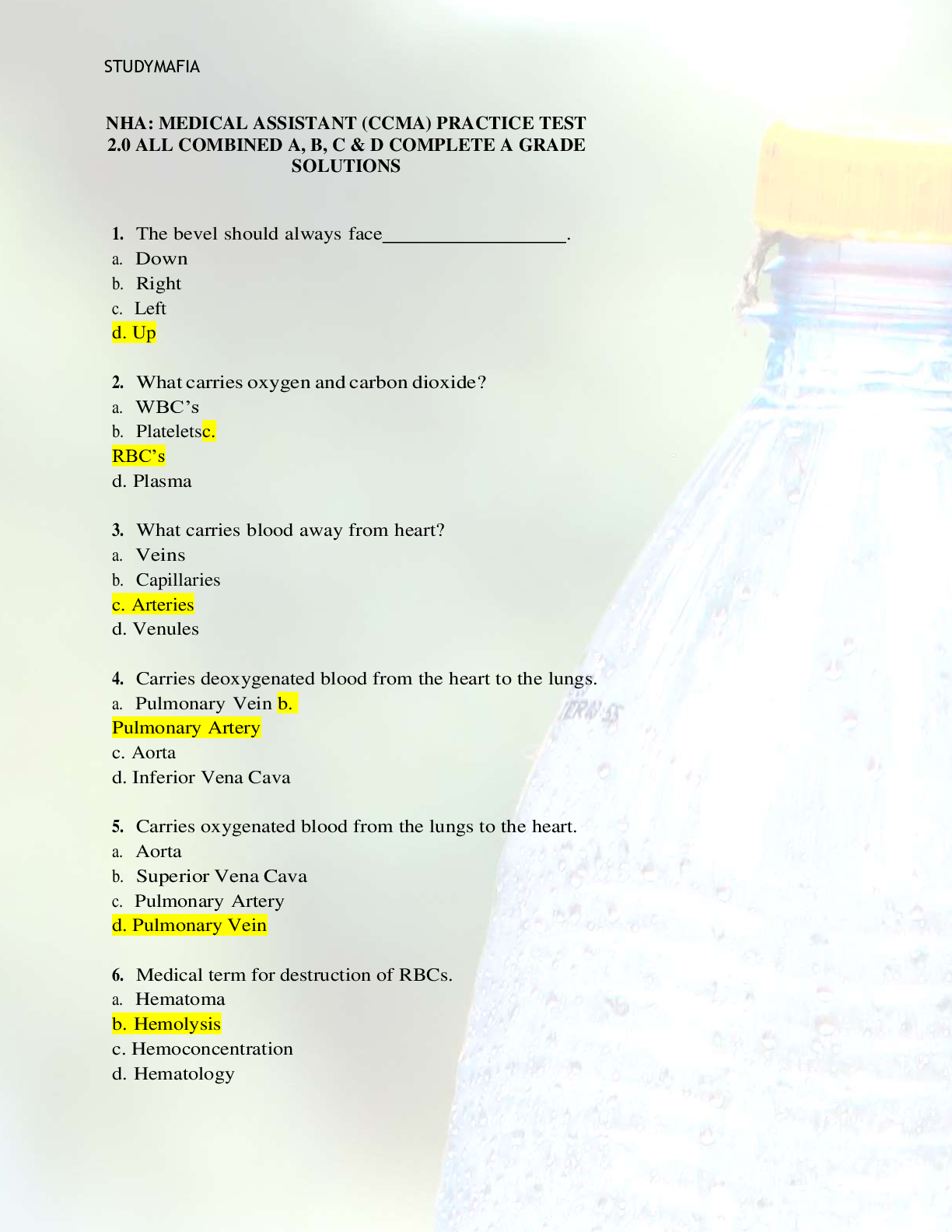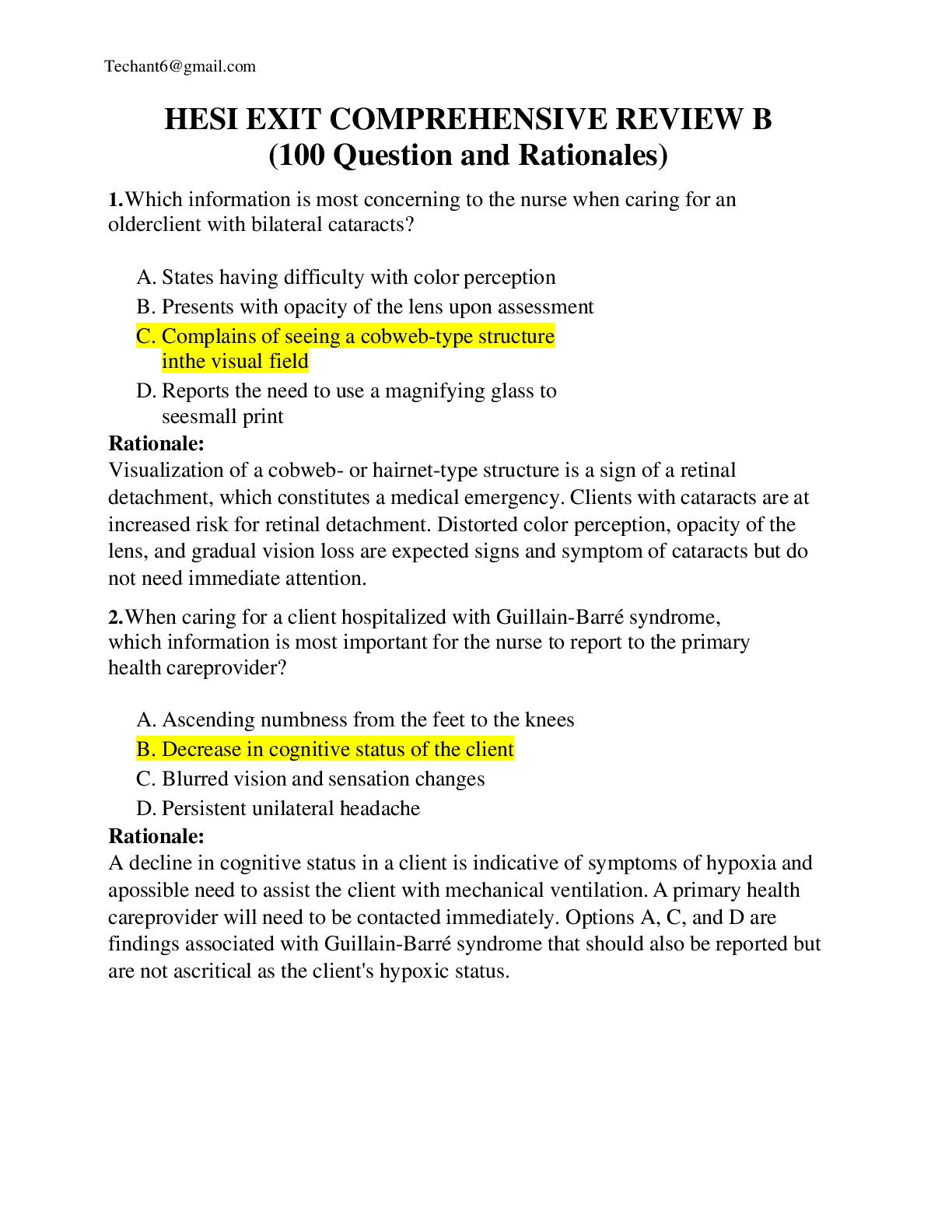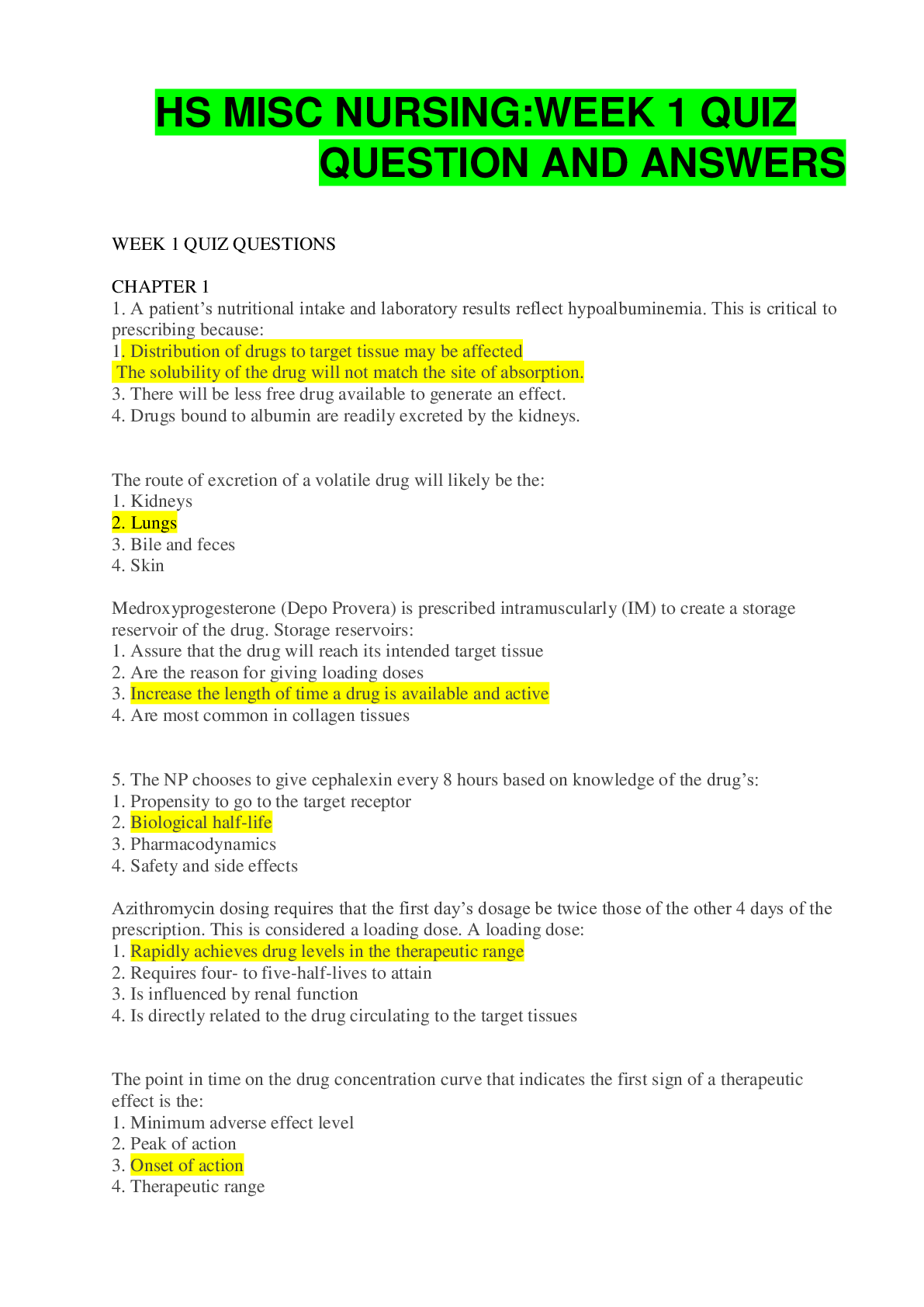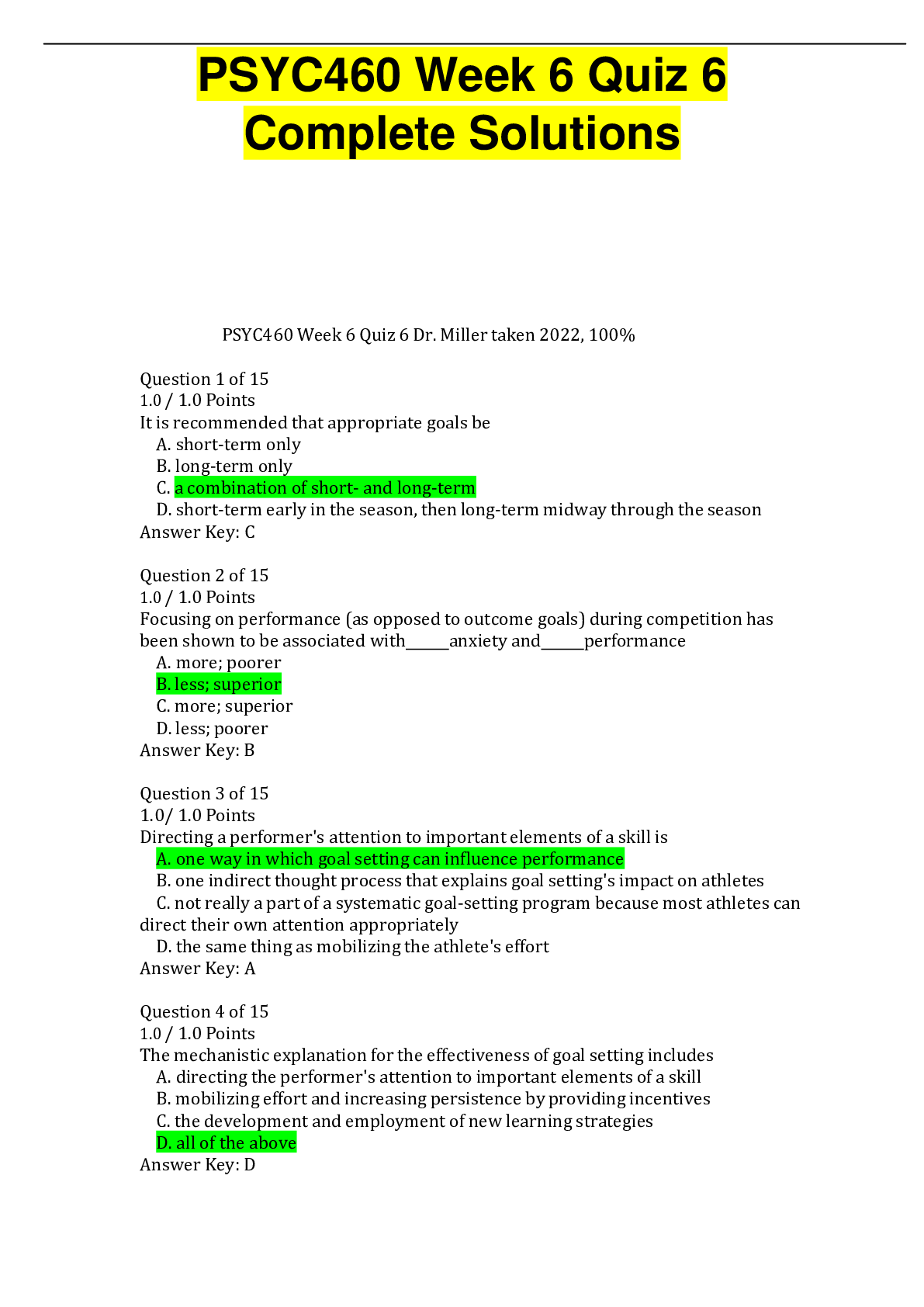Philosophy > QUESTIONS & ANSWERS > PHIL 347N Final Exam(Questions and Answers 2021) (All)
PHIL 347N Final Exam(Questions and Answers 2021)
Document Content and Description Below
(TCOs 1, 2) Determine whether the following passage is an argument. Mark is the newest member of the requisitions department. The requisitions department oversees the purchasing of all goods, servic... es, and capital equipment for the entire company. (Points : 5) Argument Not an argument because there are no claims or only one claim Not an argument because none of the claims offers a reason for the other Not an argument because the reasons explain rather than prove the other claims Question 2. 2. (TCOs 1, 2) Determine whether the following passage is an argument. Either you are planning to vote in the fall election or you donât really want to improve the politics of the local community. (Points : 5) Argument Not an argument because there are no claims or only one claim Not an argument because none of the claims offers a reason for the other Not an argument because the reasons explain rather than prove the other claims Question 3. 3. (TCOs 2, 3) Choose the best answer. Donât drive over the speed limit. Itâs against the law. You donât want a speeding ticket. Which of the following claims represents the conclusion of this argument? (Points : 5) Driving over the speed limit is against the law. You donât want a speeding ticket. You should not drive over the speed limit. Question 4. 4. (TCOs 2, 3) Choose the best answer. Healthy. Delicious. Drink Ovaltine! Which of the following claims represents the implied conclusion of this argument? (Points : 5) Ovaltine is healthy. Ovaltine is delicious You should drink Ovaltine. This study source was downloaded by 100000823250788 from CourseHero.com on 05-09-2021 12:55:42 GMT -05:00 https://www.coursehero.com/file/57067197/PHIL-347N-Final-Examdocx/ This study resource was shared via CourseHero.com None; this is not an argument. Question 5. 5. (TCOs 3, 4) Identify the kind of argument. Since all Ford Mustangs are automobiles, and not all Ford Mustangs are red, some automobiles are not red. (Points : 5) Causal argument Categorical argument Inductive generalization Analogical argument Question 6. 6. (TCOs 3, 4) Identify the kind of argument. Using a lemon when cooking is like using a lime. Given that limes can be added to bland foods to give them some zest, lemons, too, will give zest to bland foods. (Points : 5) Analogical argument Categorical argument Truth-functional argument Causal argument Question 7. 7. (TCO 3, 4) Identify the kind of argument. Learning to think critically is like learning to play the piano. Given that you have to practice a lot to be good at playing the piano, you must practice a lot to be a critical thinker. (Points : 5) Causal argument Truth-functional argument Inductive generalization Analogical argument Question 8. 8. (TCOs 2, 3, 5) Relate to the proper terminology. What evaluative language should you use for analogical arguments? (Points : 5) Valid/invalid; cogent/uncogent Valid/invalid; sound/unsound Strong/weak; cogent/uncogent [Show More]
Last updated: 2 years ago
Preview 1 out of 5 pages
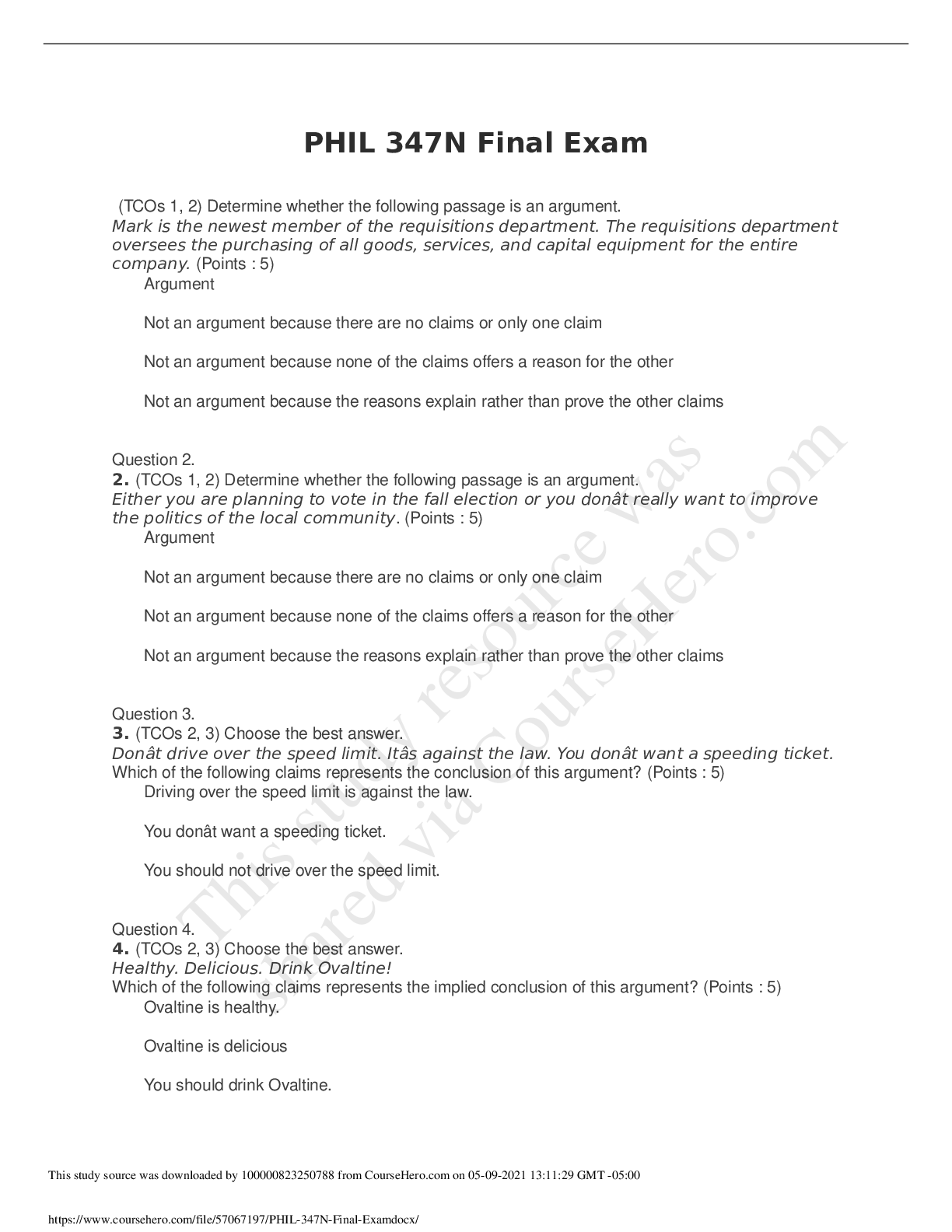
Buy this document to get the full access instantly
Instant Download Access after purchase
Buy NowInstant download
We Accept:

Reviews( 0 )
$14.00
Can't find what you want? Try our AI powered Search
Document information
Connected school, study & course
About the document
Uploaded On
May 09, 2021
Number of pages
5
Written in
Additional information
This document has been written for:
Uploaded
May 09, 2021
Downloads
0
Views
52


